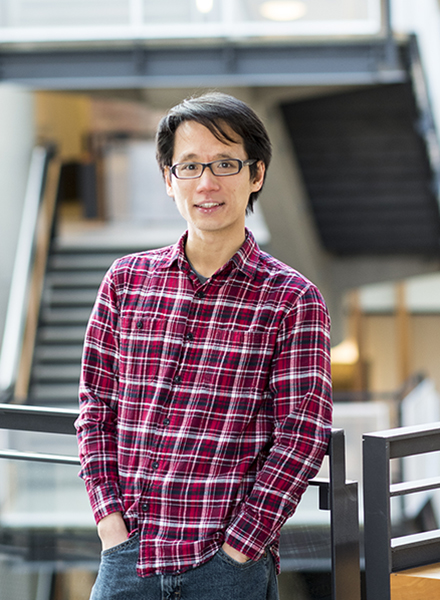 Professor Alvin Cheung, who works with UW CSE’s PLSE and database research groups, has received an Early Career Research Award from the U.S. Department of Energy’s Office of Science. Cheung’s winning proposal, “Using Verified Lifting to Optimize Legacy Stencil Codes,” was one of 49 projects selected for funding by DOE out of 720 proposals submitted.
Professor Alvin Cheung, who works with UW CSE’s PLSE and database research groups, has received an Early Career Research Award from the U.S. Department of Energy’s Office of Science. Cheung’s winning proposal, “Using Verified Lifting to Optimize Legacy Stencil Codes,” was one of 49 projects selected for funding by DOE out of 720 proposals submitted.
Cheung’s proposal describes how verified lifting can enable legacy stencil computations to leverage domain-specific languages (DSLs) and frameworks to improve performance. Stencil computations are used in many image processing, physical simulation and machine learning applications. Verified lifting is a new technique that utilizes program analysis and program synthesis to automatically infer a high-level, provably correct summary from the input code. This technique has been previously applied to database applications and programmable switches. For stencil computations, his proposal offers an alternative to the rewriting of existing applications or developing custom compilers to transform such code—practices which are both tedious and prone to bugs—while leveraging the latest developments in high-performance DSLs and domain-specific compilers to improve speed, maintainability, and portability.
Cheung, along with collaborators Shoaib Kamil, senior research scientist in the Adobe Creative Technologies Lab led by CSE affiliate faculty member David Salesin, and postdoc Shachar Itzhaky and professor Armando Solar-Lezama of MIT, will present a related paper at the PLDI 2016 conference in June. In that paper, the team describes STNG, a system that translates stencil computations from low-level Fortran code into the high-performance DSL Halide to produce median performance improvements as high as 24x.
Congratulations, Alvin!

